Famous Reformation-Era People and Terms You Need to Know
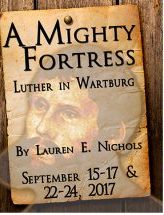
Being a bit familiar with them in advance will definitely help you to appreciate the events more thoroughly.
HISTORIC PEOPLE AND TERMS FOR YOU TO KNOW:
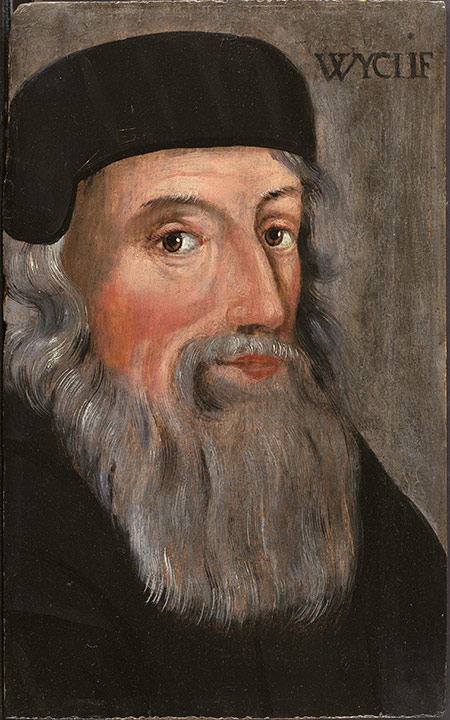 John Wycliffe (ca 1320 to 1384): known as the “Morning Star” of the English Reformation, an Oxford seminary professor who publicly criticized the decadence of the clergy and the luxurious excess of the Church. He supported rendering the Scriptures into the language of the common people, and supervised a translation of the Bible from the Vulgate into Middle English. He died of a stroke in 1384. He was declared a heretic by the Catholic Church in 1415, and his remains were exhumed, burned, and cast into a river.
John Wycliffe (ca 1320 to 1384): known as the “Morning Star” of the English Reformation, an Oxford seminary professor who publicly criticized the decadence of the clergy and the luxurious excess of the Church. He supported rendering the Scriptures into the language of the common people, and supervised a translation of the Bible from the Vulgate into Middle English. He died of a stroke in 1384. He was declared a heretic by the Catholic Church in 1415, and his remains were exhumed, burned, and cast into a river.
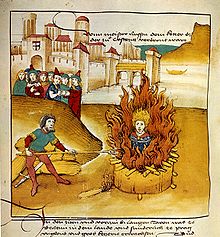
Indulgence: the transfer of “superfluous merit” to those in need, made by decree of the Church, particularly the Pope. The “excess” goodness of Christ and the saints could be transferred to others to mitigate their punishment in purgatory. (It was sometimes claimed to provide forgiveness of sins themselves—as opposed to lessening of the sins’ penalty.) The Church was able to specify precisely how many years and days could be reduced from one’s penalty. Popes often pronounced a specific merit to be connected with the viewing of saints’ relics (bones or bone fragments). The payment of a sum of money often attached to granting of an indulgence, began during the Crusades, and had financed the building of many of the Gothic cathedrals, as well as other churches, monasteries and hospitals in the Middle Ages. Luther protested against the efficacy of indulgences, since forgiveness of sins is paid for by Christ’s death and imputed by grace based on the true repentance of the believer—which can be determined only by God.
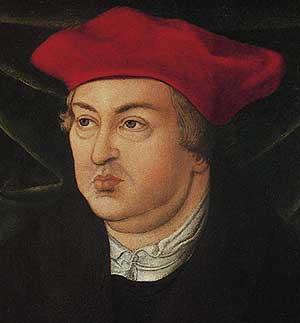

Pope Leo X: pontiff, 1513-1522, member of the Medici family, notorious for his indolence and expensive tastes (including carnivals and gambling). The resources of three papacies were squandered during his reign. One Catholic historian described his ascent to Peter’s chair as “one of the most severe trials to which God ever subjected His Church.”
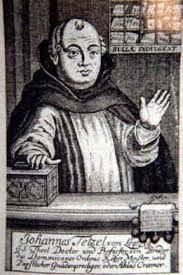
Tetzel: Dominican priest and experienced proclaimer of indulgences. Official “vendor” of the new indulgence dispensed by Albert in his territories. (The indulgence was not offered in Luther’s parish, because permission from the civil authority was required and Frederick—see below—forbade the sale of an indulgence which would compete with those of All Saints’ Day at Wittenberg.) The indulgence sales included a solemn procession, led by a standard bearer with a cross and the papal coat of arms, and the pope’s Bull (declaration) of Indulgence held aloft on a gold-embroidered velvet cushion.
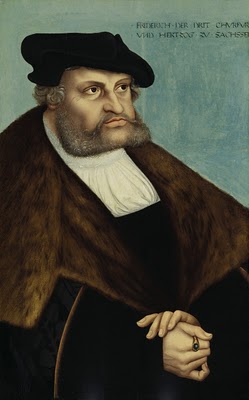
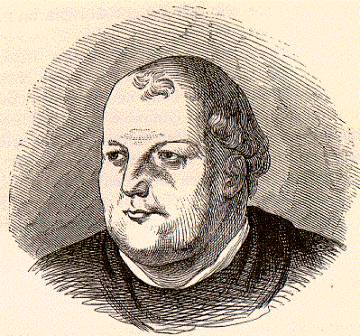
John Eck: professor at the University of Ingolstadt. Once a friend of Luther’s, he became an enemy after the publication of Luther’s Theses. Eck was a formidable debate opponent who traveled all over the Empire to defend various doctrines and dogmas of the Church. He enlisted Duke George‘s support of Leipzig as a challenger to Wittenberg University, for the sole purpose of debating Luther face to face.
Duke George: a Saxon prince and patron of Leipzig University. Moderator of a heated debate in 1519 between the universities of Leipzig and Wittenberg, where the chief opponents were John Eck and Martin Luther.
Cardinal Cajetan: Papal legate (representative) who granted Luther a personal hearing at the Diet (Imperial session) of Augsberg in October 1518. Luther had previously been cited to appear in Rome within 60 days, on charges of heresy. Luther’s appeal to Frederick produced the compromise meeting on German soil. Cajetan was disinclined to be moderate, knowing that both Emperor Maximillian and the Pope were furious with Luther’s writings. Cajetan had no intention of “wrangling” over the issues, or even defending the Church’s position. He simply wanted Luther to recant–i.e., to take back all the statements which were found to be offensive and heretical.
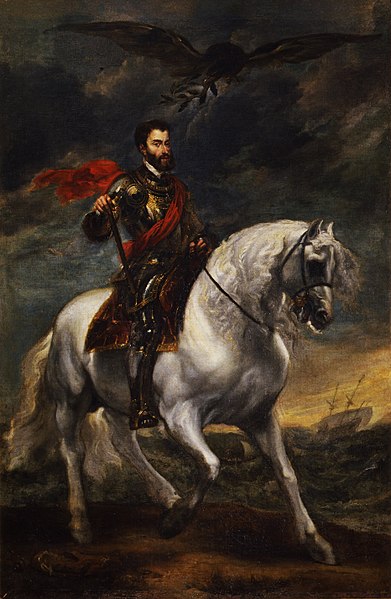
Charles V: of the House of Hapsburg. King of Spain already, he was elected emperor of the Holy Roman Empire in 1519, very much against Leo X’s wishes. His preoccupation with Spanish matters during ‘the first eighteen months of his reign delayed decisive action against Luther’s “dangerous heresy.” Ruler over the largest land mass of all time, Charles voluntarily abdicated in 1564-1566. Physically exhausted, he retired to a monastery and died two years later.
Philip Melancthon: brilliant young professor of Greek at Wittenberg. At the age of 21, he already enjoyed a European reputation for his learning. Champion and outspoken defender of Luther’s theology.
